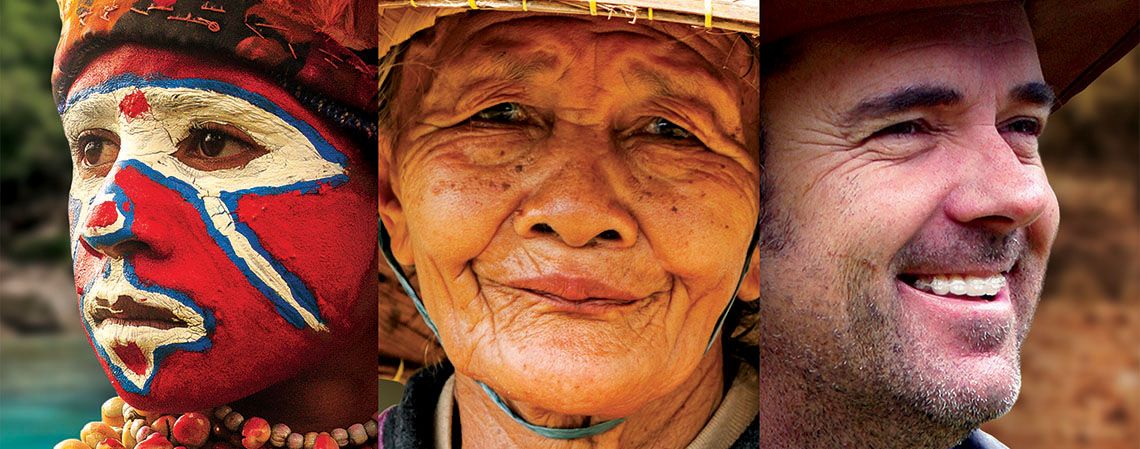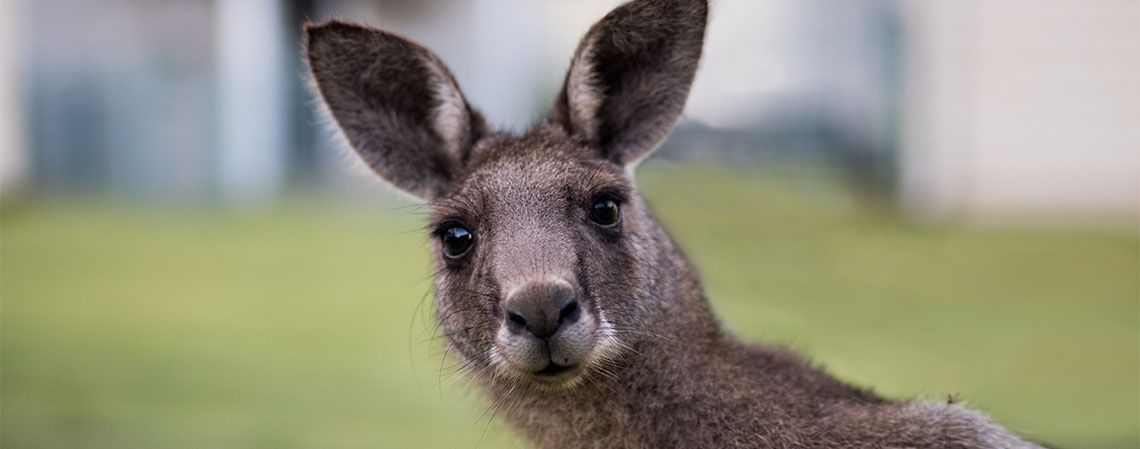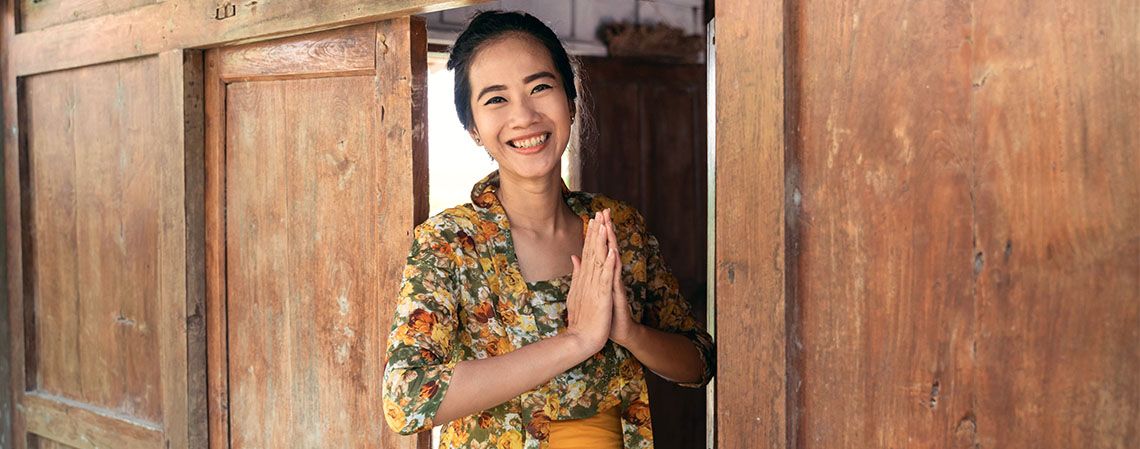One Among the Multitudes

For thirty years, my husband and I ministered in Indonesia, a country made up of a multitude of isles. To help put a face to just one person who lived in the midst of those isles, I’d like to share a glimpse into the life of a lady who most people would think had very little in her life for which to be glad. However, because the Lord reigned in this precious woman’s life, her joy, in the midst of continual trials, was truly amazing.
This woman’s name was Ibu Sumini¹, a Javanese lady from the Indonesian island of Java. The Javanese² are dominated by an Islamic faith entwined with centuries-old mysticism. In spite of the prevailing Islamic influence in her family, as a child, Ibu Sumini would occasionally sneak off to attend a Christian children’s class. However, when her father discovered these secret visits, he beat her with a wooden board and forbade her from further attendance. Nevertheless, the seeds of a loving God had been planted in her young heart. While outwardly she continued in the Islamic faith, she felt a deep yearning on the inside due to what she had heard in those classes. Decades later, when a middle-aged Ibu Sumini had a chance to hear a clear presentation of the Gospel, her open heart readily received the truths of the Bible, and she became one of our first converts in Yogyakarta, Java.
Embracing her new identity as a follower of Christ, Ibu Sumini opened her simple home for us to hold “Sunday” school on Friday evenings. She then not only went into her community to bring in most of the children who attended, but she also insisted—despite her deep poverty—on supplying a fried snack for the children each week. Her generosity and faithfulness enabled us to have a place to meet and share the Gospel with children who would have never heard of God’s love without Ibu Sumini’s sacrifice.
As she opened her home for children’s ministry, in His goodness, God helped Ibu Sumini receive a blessing through her service to Him. By this time in her life, Ibu Sumini was a widow. In Indonesian culture, the term widow is a polite way of saying that a woman’s husband has abandoned her. In Ibu Sumini’s case, her husband had left her because she was barren. Yet after years of resigning herself to a life of childlessness, she realized that through her Sunday school ministry, God had given her more children than she could have ever dreamed of having.
In addition to opening her home for children’s ministry, Ibu Sumini also allowed her home to be used for weekly discipleship classes. Through the years, she would invite Muslim lady friends and neighbors to her home to join in. These ladies would never have been able to come to church nor been able to invite us into their own homes due to fear of their Muslim husbands or families, but they were able to hear the Gospel presented in Ibu Sumini’s home. After months of hearing the truth from the Word of God and seeing the difference in Ibu Sumini’s own life, many of them came to know Christ as Saviour. Some of the ladies from these discipleship classes, particularly the widows, did start coming to church after their salvation, followed the Lord in baptism, and faithfully grew in the Lord.
During our years of ministry there in Yogyakarta, Ibu Sumini was one of the key individuals that God used to help us reach those in her community for Christ. One day, Ibu Sumini confided in me with heaviness of heart that she believed she would have no reward in heaven nor crown to present to her Saviour because she had never led someone to the Lord, having never felt secure enough to do so herself. With tears in my eyes, I replied, “Ibu Sum, you will have so many more crowns to present to Him than I. It was you who through the years brought all of these children and ladies to the Lord. Pak Larry and I have merely been the ones privileged to then open His Word and show them from the Bible how they can be saved and know Christ as Saviour.”
Until that time, Ibu Sumini had never realized the role that she was having in making an eternal difference in so many lives.
Her influence and ministry through the years were made all the more remarkable by the trials she faced as a new Christian surrounded by staunch Muslims. These trials began shortly after her salvation when she decided to follow the Lord in believer’s baptism. The day after she made that decision, she went in to work only to find out that she had been fired. Her decision to be baptized had signaled to others that she had converted to Christianity, a decision that her Muslim community viewed as a betrayal of her family and culture. Despite losing her job, Ibu Sumini remained unshaken in her faith and continued to trust in the Lord.
She not only faced persecution from her employer but also from her family. One day, her Muslim brother who had long ago moved to another island unexpectedly visited Ibu Sumini in her home. When he walked in, he saw the small stack of Bibles that she kept on a side table for the discipleship/outreach classes that we held in her home. Filled with anger, and attempting to shame her into returning to Islam, he viciously beat her and then shaved her hair. As shaved hair is a sign of humiliation and control, he believed she would not go out in public to church anymore. However, he did not realize that Ibu Sumini’s strength and hope came from the Lord in Whom she had placed her trust. A week later, a bruised Ibu Sumini was faithfully back in church, now wearing a stocking cap.
To many, she would be just a nameless face among the multitude, but to me and those whose lives she touched, she was a shining example of God’s grace and sufficiency.
Satan’s attacks did not stop there, however. At one point, a tiny fish bone stuck in her finger developed a significant infection. Were she not a Christian, she would have been able to turn to her neighbors for help in covering medical expenses to treat her wound. (“Health insurance” in Indonesia is having family and neighbors pitch in when there is a medical need.) However, just as her employer and family viewed her as a traitor, so did her communal support system, for when she placed her trust in Christ, nearly everyone around her turned their back on her. Since Ibu Sumini was not able to afford a doctor’s visit, the infection festered and spread. During this time, we were on furlough in the States and unaware of her situation. Months later, upon our return to Yogyakarta, we noted that Ibu Sumini kept asking prayer for her finger. Puzzled at what could be wrong, I asked to see the wound. When she opened her bandage, the sight and smell were overwhelming, and I couldn’t help but notice a black line leading from the infection up into her arm. Knowing something had to be done, we took her to the hospital and covered the medical expenses that she could not pay herself. While we feared she would lose her entire hand because of the gangrenous infection, we were thankful the doctor only had to amputate her finger. Had her community rallied around her as they would have a fellow Muslim, she would have been able to cover the medical care that she had needed months previous and saved her finger. Her decision to follow Christ had resulted in her employer firing her, her brother shaming and beating her, and her communal support system abandoning her. Yet these persecutions did not detract from Ibu Sumini’s joy. She knew her true belonging was with the Lord.
Today, Ibu Sumini is face-to-face with the Saviour she served so faithfully. Her earthly rejoicing has now been perfected into a heavenly rejoicing. To many, she would be just a nameless face among the multitude, but to me and those whose lives she touched, she was a shining example of God’s grace and sufficiency. Truly, our Lord reigns; let the earth rejoice.
1 Ibu Sumini, pronounced EE-boo sue-MEAN-ee
2 The Javanese are the largest of the 1,340 ethnic groups that make up the Indonesian population of over 275 million people. They comprise 45% of the total population. Though often more nominal Muslims, Islam, with the addition of fatalism and mystical animism, is strongly adhered to on Java.






